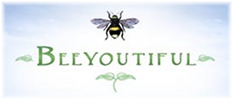Eid al-Adha
December 8, 2008 in Africa, Travelogue, Tunisia
< ![CDATA[ All is quiet in Hammam-Sousse this morning. The usual cacophonous blend of taxis honking and music blaring and the shouting of vendors blended with the bells on horse and donkey harnesses as the farmers arrive to work the farm plot across the street is conspicuously missing. Today is a big day. It is an important holiday in the Muslim calendar: the Eid al-Adha, the festival of sacrifice, or as the Tunisians call it, the Eid al-Kibir, the big festival. It is the second of the Eid celebrated by Muslims each year and it usually falls about 70 days after the end of Ramadan, the day after the hajj to Mecca ends and the pilgrims come down off of Mount Arafat. (This year at the Hajj, in Iran, they are cheerfully chanting "Death to America," which is making us a little twitchy.) It is a festival in memory of the sacrifice that Abraham was willing to make of his son. As the story goes, Abraham took his first and favorite son, Ishmael up onto the mountain to sacrifice him to God, as God had instructed him. He and the boy built an altar and Abraham placed Ishmael on the altar, at the last moment, God provided a ram instead of the boy for the sacrifice. The Quran tells the same story as the Bible, but with one important character change: Isaac becomes Ishmael. For Eid al-Kebir Muslims sacrifice the best of their livestock, usually a lamb or a goat, but sometimes a camel or a cow, as an offering to Allah in remembrance of his provision for Abraham and Ishmael. The preparations for the festival have been going on all week. We first noticed it last weekend when shepherds and whole flocks of sheep began to wander into the city, right down the middle of the streets. Kids could be seen leading lovely sheep on ropes and ribbons around the courtyards of their homes, playing with what would soon be dinner. The souq and the stores were jam packed with people stocking up, like we would before Thanksgiving or Christmas. The store flyers featured cartoon sheep running on two legs across the bottom of the page. “They’re running for their lives, Mom,” observed Elisha. It was Peter and Susan who brought us up to speed on the impending festival when we paid them a visit last week. “Monday is Eid al-Kebir, so you’d better make sure you’ve got in meat and anything else you need for a few days. The stores will all be closed until at least Wednesday and the butchers may not bother to open all week, as everyone will be eating leftover lamb,” said Susan. “What is Eid al-Kebir?” we asked. “It is the annual sheep slaughtering festival. Every man who is the head of a household takes a sheep, faces toward Mecca, says a few words of prayer over the sheep and then slits it’s throat. No one can kill their sheep before the President though. He goes first, it is usually televised, then everyone in the country can slaughter theirs. The blood is drained out of the sheep and then it is skinned. The only proper way to skin a sheep is to make a slit in the skin down near an ankle and then put your mouth over the slit and inflate the skin around the meat like a big balloon. That way when you cut the skin off it is already detached from the meat and it will make a much nicer fleece. After that is done, they roast the meat, one portion for the family, one portion for friends and relatives and one big portion for the poor.” Peter explained. Who knew? Note to self... if we ever raise sheep, get an air compressor to lessen the frequency of having to inflate a sheep by mouth. “Oh,” added Susan, “And don’t bother trying to do any washing after about 10:30 in the morning on Monday. There won’t be any water pressure as everyone will be washing out their sheep intestines to make sausage.” Nice. A very authentic moment: washing out sheep intestines in the kitchen... or maybe the bathtub. Lovely. Thus enlightened, we went about our business, obediently provisioning up for the expected halt in services early this week. I was happy to know about the Eid when our taxi driver picked us up from the souq and said, “Did you get your sheep? Do you eat lamb?” “Uh... no... didn’t get a sheep, we eat lamb, but not quite in the same way you do at Eid.” He laughed and swerved around another shepherd and his little flock, blowing his horn. Indeed, the souq was more of a madhouse than usual (and that’s saying something.) Everything was marked up by at least 500 millimes per kilo... supply and demand, I suppose. The grocery store on Sunday was just as bad. There was no red meat at all to be had, only chickens (plucked and under cellophane, thankfully.) This morning’s schooling has been punctuated by trips out onto the balcony to watch various families in differing stages of the slaughter process. One family, Dad, Mom and little boy, we caught in the act of peeling their sheep and dumping a huge vat of bloody water into the bushes next to the playground behind the neighboring hotel. It seems they slaughtered their sheep under the swing set and left the fleece to be licked clean of blood and bits by the local feral cats. We stood a long while listening to the pitiful bleating of another little sheep, tied up in front of the hotel across the street, who seemed to have an inkling of his fate, waiting for the fateful moment. “I don’t like that they murder their sheep, Mom,” said Elisha... who was salivating over the roast mutton by the roadside just last weekend. We were all disappointed to have the sheep lead out back and the carnage done just out of our direct line of sight. The ominous and quick end to the bleating the only evidence of the completed deed. Tony did get a nice photograph of the sheep, pre-sacrifice, and one of a big puddle, half blood and half water, by the doorway of our apartment, where our neighbors had been nefariously employed earlier in the morning. It is afternoon now. Most of the “fun” is over. The sheep are all roasting nicely all over town. Kids are playing out in the courtyards of their houses, waiting for dinner. Celebratory music is drifting around from house to house. Abraham’s faithfulness to Allah has been remembered and due sacrifices made. I suspect we’re the only family in town eating lasagna for for dinner tonight.]]>
 RSS - Posts
RSS - Posts

























